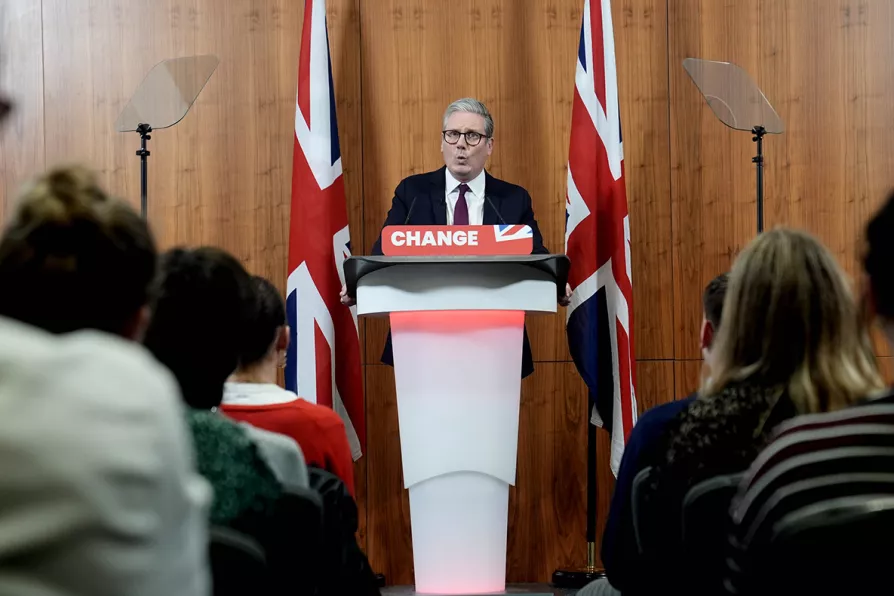From Chartists and Suffragettes to Irish republicans and today’s Palestine activists, the treatment of hunger strikers exposes a consistent pattern in how the British state represses those it deems political prisoners, says KEITH FLETT

 Labour Party leader Sir Keir Starmer speaking in Westminster, London, after a General Election was called for July 4, May 22, 2024
Labour Party leader Sir Keir Starmer speaking in Westminster, London, after a General Election was called for July 4, May 22, 2024
TODAY the curtain closes on Rishi Sunak’s disastrous Tory government. Ahead of the general election, the government is now busy trying to rush through remaining legislation which will otherwise fall when parliament is dissolved.
To do this, it needs agreement from the opposition front bench to speed up the normal parliamentary process. Keir Starmer must not help the Tories to pass their toxic Anti-Boycott Bill.
The government’s s Economic Activity of Public Bodies (Overseas Matters) Bill, better known as the Anti-Boycott Bill, threatens to erode local democracy, restrict freedom of expression and undermine campaigns for social and climate justice.

Trade unionists must raise our voices not only for justice and against occupation, but also to protect our fundamental right to protest, writes LOUISE REGAN, ahead of a not-to-be-missed PSC conference

RAMZY BAROUD highlights a new report by special rapporteur Francesca Albanese that unflinchingly names and shames the companies that have enabled Israel’s bloody massacre in Gaza












